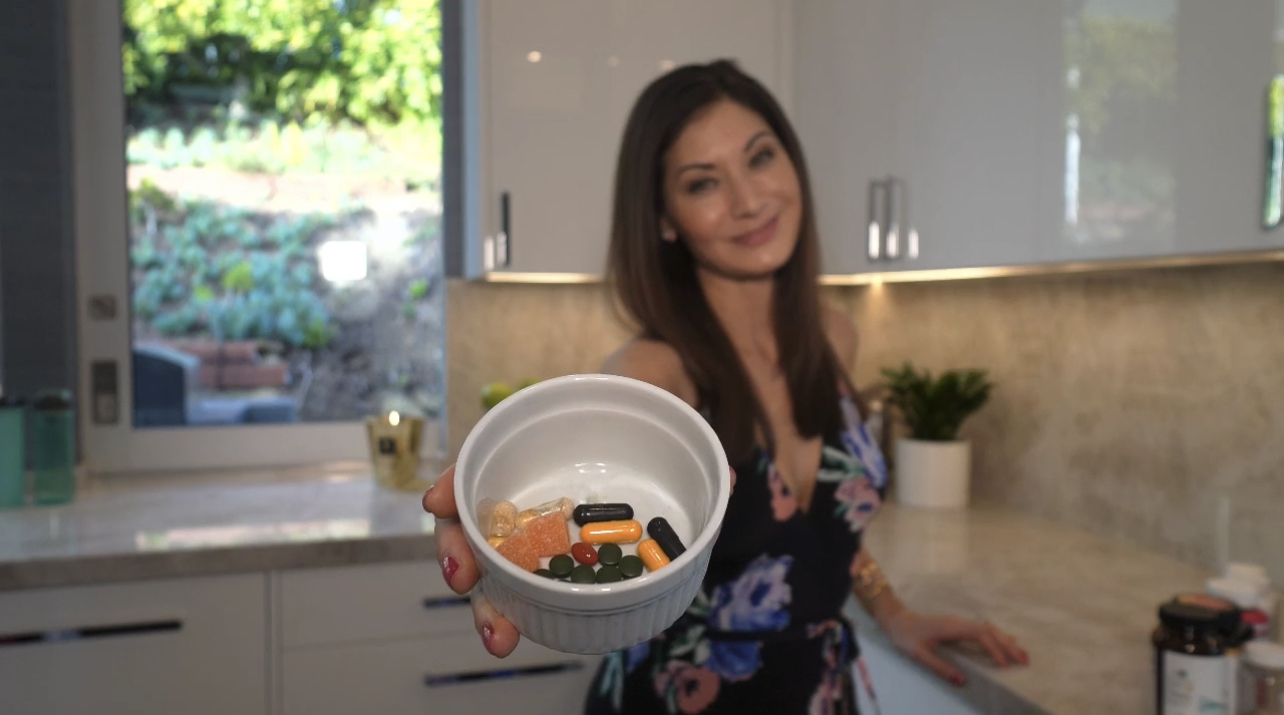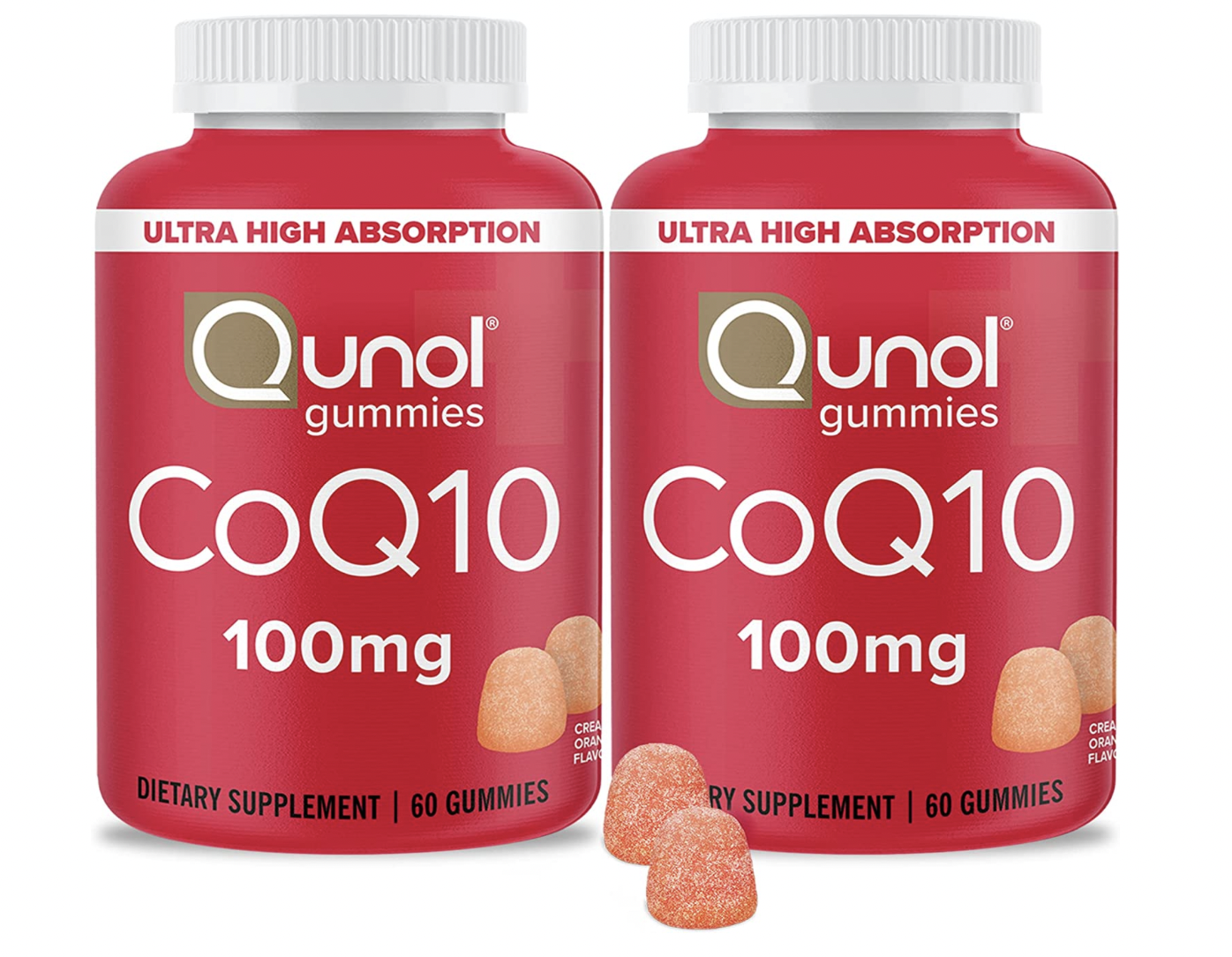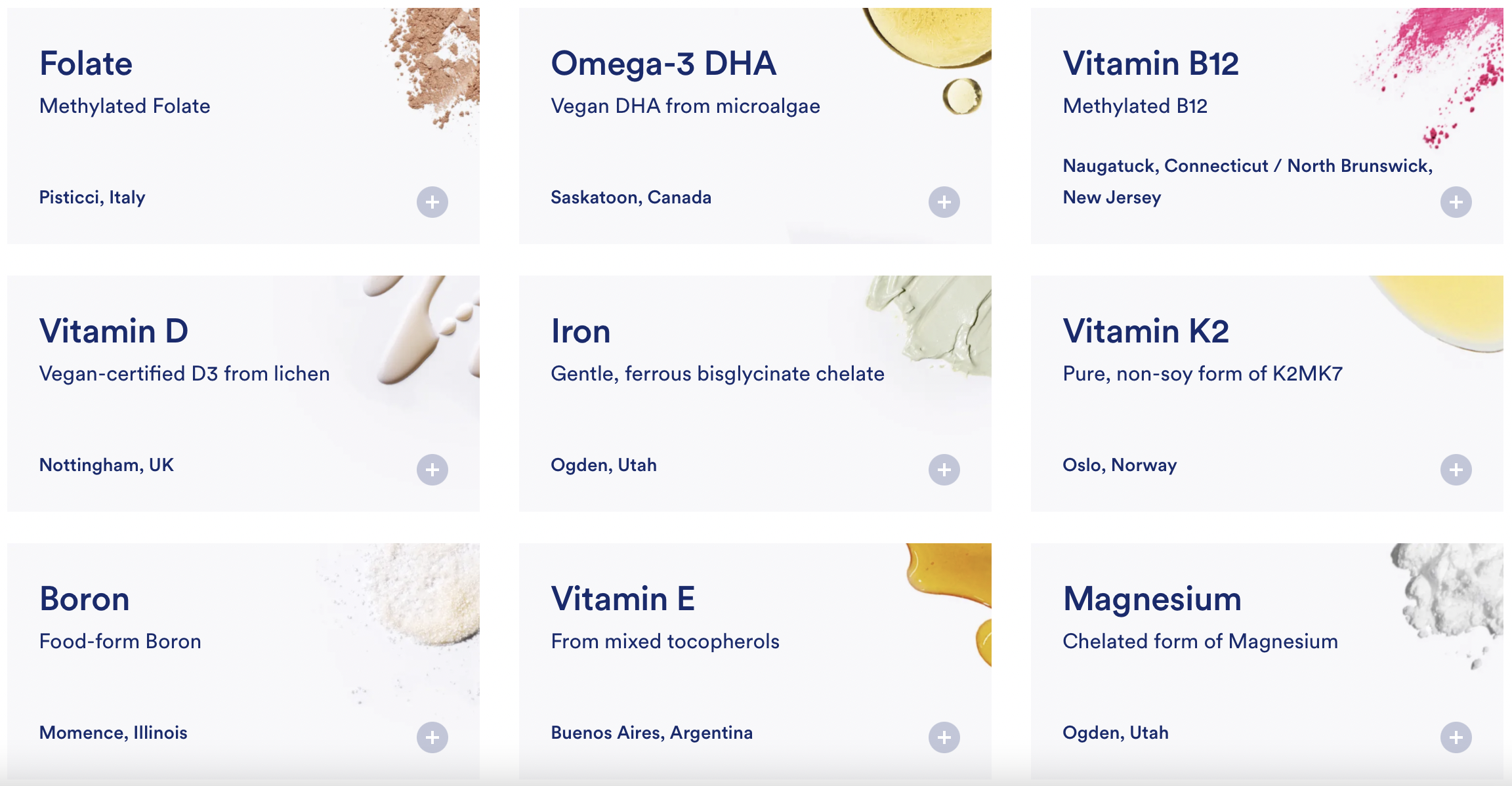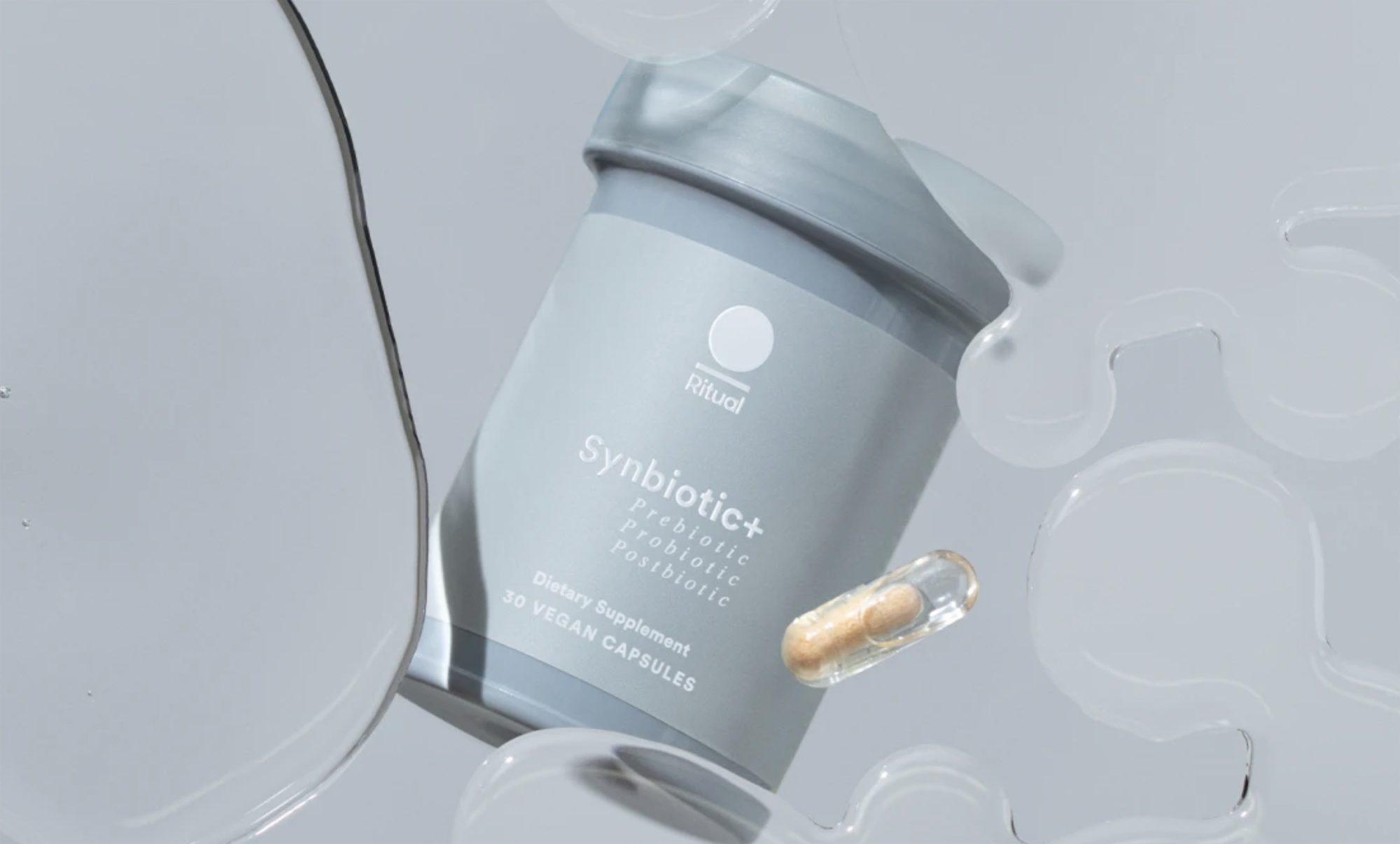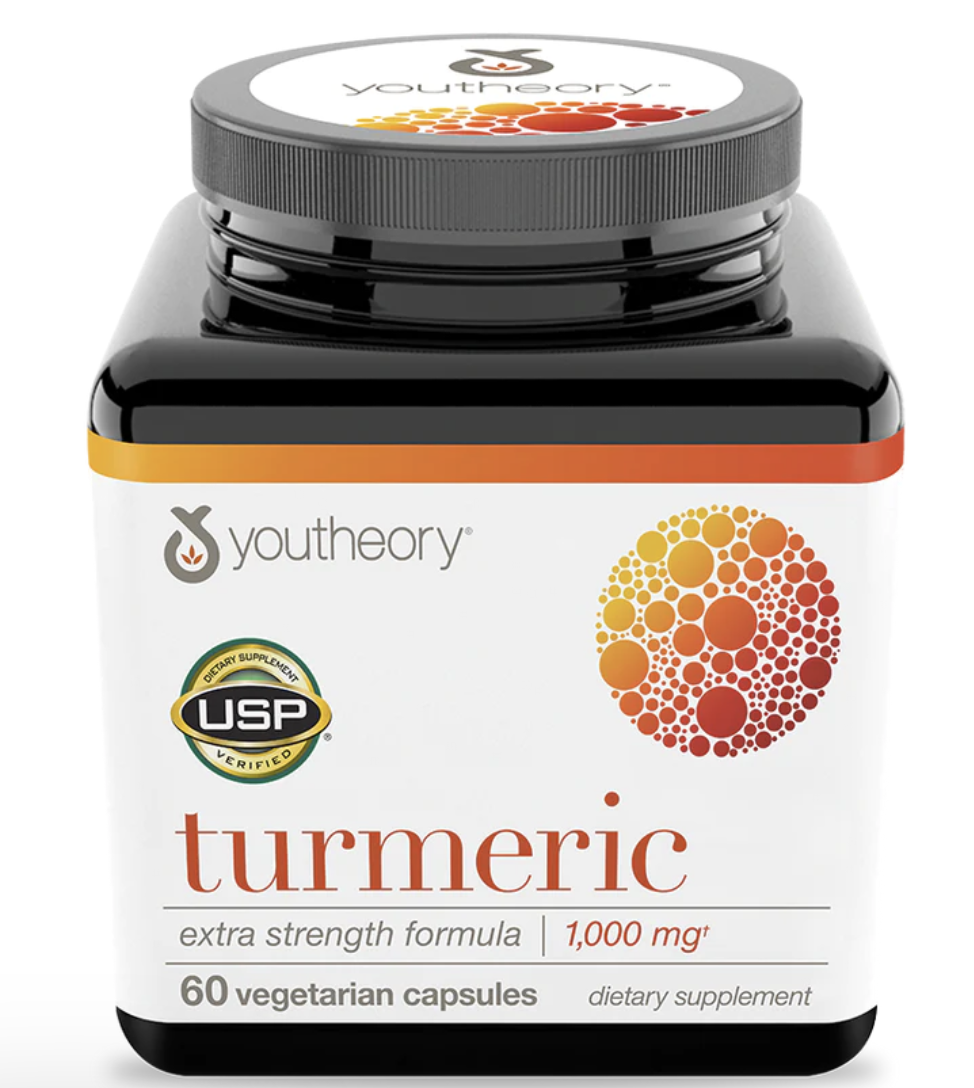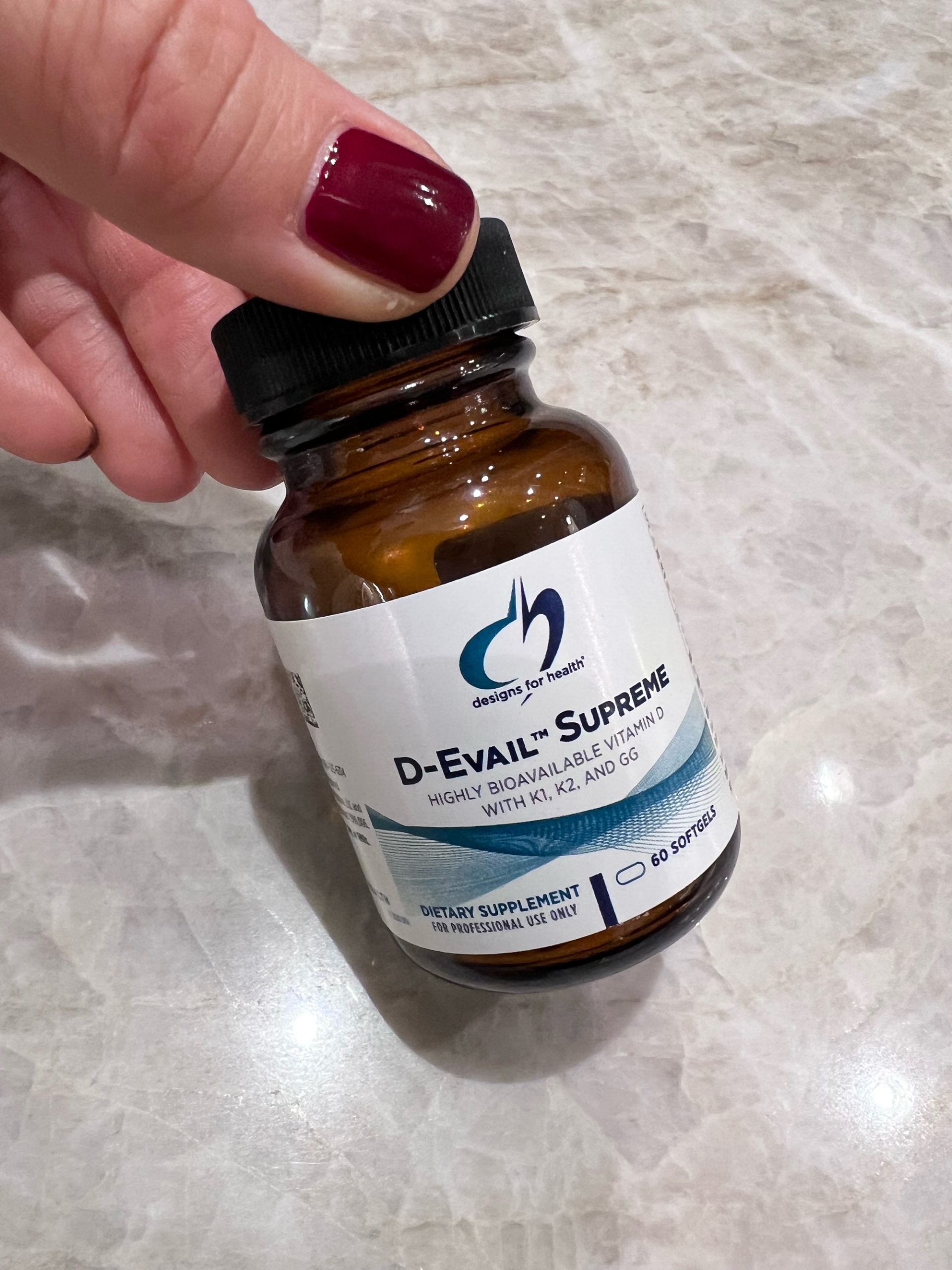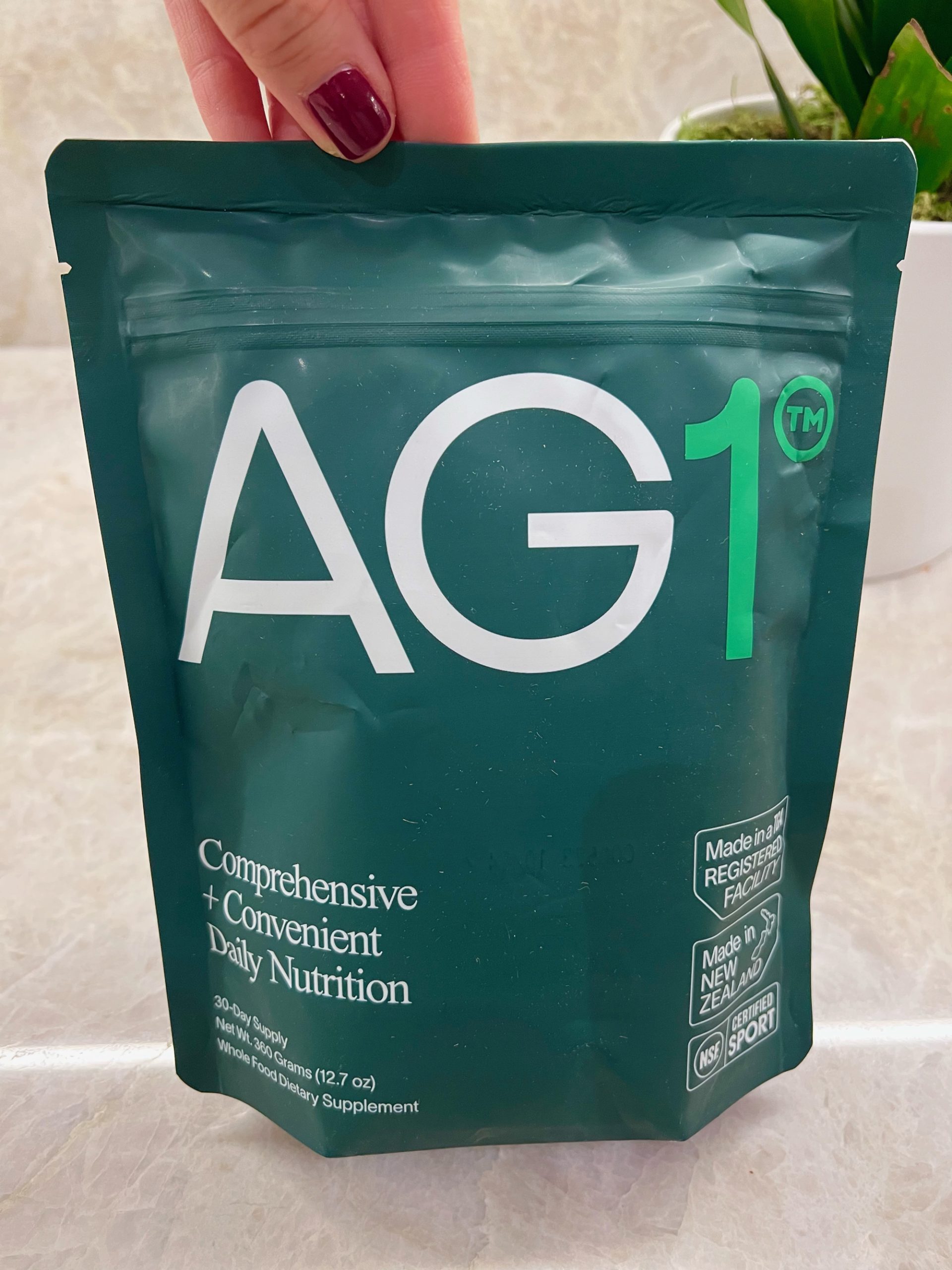I used to think buying supplements was a waste of money. I told myself I was already eating a ton of nutrient-dense foods and getting all the vitamins and minerals I needed from the food I was consuming. It turns out I was wrong.
Studies show our fruits and vegetables are not as nutritious as they used to be. Health experts say due to soil depletion (our soil is deficient in micronutrients), our plants don’t contain as many nutrients as the plants our grandparents ate. Plus, the use of pesticides and chemicals used to treat our produce and grains can have negative impacts on our health. All the more reason to supplement with nutrients we may not be getting just through diet alone.
According to a study published in The National Library of Science, one-third of the U.S. population over the age of 9 is at risk of deficiency in at least one vitamin (Julia K. Bird, et al).
Learning all of this a few years ago piqued my interest in supplements and prompted me to schedule a blood test with my doctor.
I also asked my acupuncturist/herbalist what she thought I should be taking to maintain optimum health.
For the last two years, I’ve been taking six supplements every day. On days when I don’t want to swallow my supplements in pill form, I drink a nutritional drink that is chock full of 75 different nutrients.
Before I share my daily supplement routine, I should probably share a little bit about my health journey.
MY HEALTH AND WELLNESS JOURNEY:
When I first made a commitment to eating healthy, I was 21 years old. My pau pau (Chinese for maternal grandmother) was sick with cancer and watching her suffer from the disease broke my heart and became my fuel for my passion for prevention.
I remember wondering why she had been dealt such a painful fate and I also wondered if there was something I could do to lower my risk of developing the disease later in life. That’s when I started reading about prevention and discovered the power of food and lifestyle choices.
I quickly learned that food was way more than just something you put on the end of a fork. I learned it was medicine; well, the right foods were medicine. I also learned the wrong foods increase your risk of disease (highly processed foods, fried foods, etc.).
My early adulthood discovery fascinated me and sent me down a path of research that eventually led me to obtain a Master’s Degree in Public Health.
At that time, my goal was to become a health reporter and share valuable information with the public so they could make informed decisions that would impact their health, and quality of life and ultimately lower their risk of developing chronic diseases…like cancer my pau pau had.
While I didn’t exactly become a health reporter, I did become a general assignment reporter. I would often pitch health stories to my producers, but instead, they put me on stories like wildfires, multi-vehicle accidents, and homicides.
While I covered breaking news out in the field, my passion for health and wellness never waned.
Today, I do my best to stick to a healthy lifestyle. I move my body daily (lift weights, spin, hike, etc.), meditate, practice yoga, and eat nutrient-dense foods (about 85% of the time…hey, we can’t be 100% all the time).
In 2016, I switched from a pescatarian diet to a vegan diet. While I know being vegan doesn’t work for everyone, it works for me. I have a ton of energy and feel great. I also added intermittent fasting to my routine a couple of years ago.
Today, I follow a 16:8 fast, 5-6 times a week (I usually stop eating at 7 pm and start eating the next day at 11 am). There are so many benefits to fasting; it’s anti-inflammatory, anti-aging and helps maintain your weight. Personally, I’ve never felt better. Again, while this works for me, it may not work for you.
For years, I said no to supplements because I thought my diet was super clean and rich in nutrients. After a little research, I learned I was completely wrong (reasons above).
Obviously, I’m not a doctor, I’m just a health-conscious individual, and thought I’d share my daily supplement routine.
DAILY ROUTINE:
PILL FORM:
1) Spirulina/Chlorella – technically, algae is a food, not a supplement, but I take these with my supplements in the morning.
Spirulina and Chlorella are superfoods; they’re full of protein, antioxidants, amino acids, vitamin B-12, iron, minerals, and chlorophyll. Studies show spirulina and chlorella impact your energy, aid in gut health, and focus, improve athletic performance, helps build your immune system, and improve longevity.
EnergyBits
Code LIBERTE saves 20% at checkout
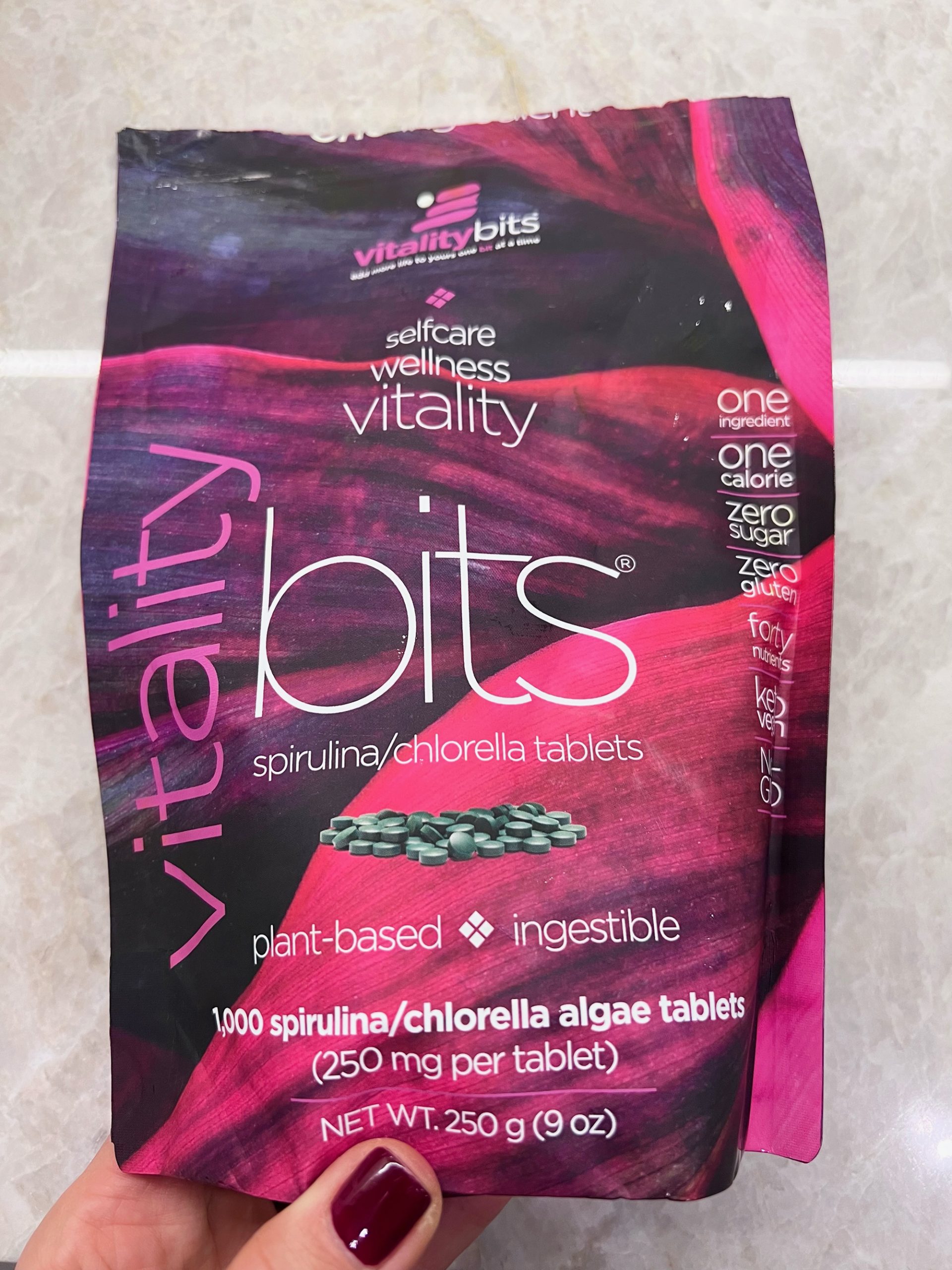
2) CoQ10 – heart, antioxidant
Coenzyme Q10, also known as CoQ10, is a compound that helps generate energy in your cells. It’s a powerful antioxidant I take for its protective heart benefits.
3) Multivitamin
I take two multivitamins every day because they help fill in the nutrient gaps in my diet.
This is the multivitamin I take from Ritual. It contains 9 traceable ingredients:
CODE: LIBERTE20 saves 20% at checkout
4) Synbiotic
I take this prebiotic/probiotic/postbiotic from Ritual for gut health
CODE: LIBERTE20 saves 20% at checkout
5) Turmeric
anti-inflammatory (this brand of turmeric contains cracked pepper to aid with absorption)
6) Vit D
I was deficient in this vitamin last year, so I make sure to take one everyday.
SUPPLEMENTS IN LIQUID FORM:
AG1
I cannot say enough good things about AG1. I drink this when I don’t feel like taking supplements in pill form.
It may look like a green juice, but it is SO MUCH MORE! It has 75 different nutrients including a multivitamin, prebiotics, probiotics, and adaptogens like medicinal mushrooms. The only thing it doesn’t contain is Vitamin D, so I make sure to take Vitamin D separately on days I drink AG1.
If you’re interested in adding AG1, here’s a link: https://athleticgreens.com/libertechan
You will get your 1-month supply of AG1, plus 5 travel packs and liquid drops of Vitamin D which is not included in the formula.
Things I take as needed:
Magnesium Chelate – helps you sleep (there are different kinds, talk to your doctor about what would be best for you)
Chinese Herbs for stomach discomfort (prescribed by my herbalist)
Charcoal – anytime I travel, I take charcoal for bloating, digestion, and detoxification
Equilibria CBD Sleep Gummies – helps me sleep (use code: LIBERTE to save at checkout)
Equilibria CBD Daily Drops – helps me with stress and is a powerful anti-inflammatory (use code: LIBERTE to save at checkout)
I want to reiterate that I’m not a doctor and before adding anything to your wellness routine, I’d encourage you to talk to a physician or health expert who can guide you and your specific needs.
If you decide to add supplements to your wellness routine, just make sure they are high-quality and from a brand that gets their product tested by a third party. The FDA doesn’t regulate supplements, so it’s important to do your research and make sure you’re not wasting your money on supplements that could be ineffective and/or contain fillers + additives which could end up compromising your health in the long run.
I should also mention that I get my blood checked every 6 months to make sure my levels are in an ideal range; I believe it’s a great way to stay on track.
Health and Fitness Podcasts I love:
https://themodelhealthshow.
#1 Health and Fitness Podcast on Apple Podcasts
https://drhyman.com/blog/
Functional Medicine Pioneer
https://daveasprey.com/
“The Father of Biohacking”
If you are interested in adding herbs to your daily regimen, here is a link to my herbalist! She does phone consultations if you’re outside the LA area:
Sources:

